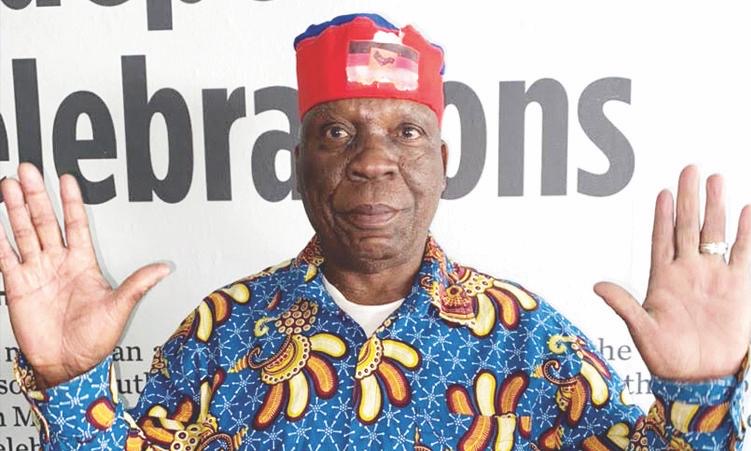SOWETO – Low on equipment but high on enthusiasm, hundreds of Soweto schoolchildren are helping clean up the murky and polluted Klip River which courses through South Africa’s most famous township.
Located on the southern fringes of Johannesburg, the sprawling township – a mishmash of tin shacks to upscale homes – is a far cry from the city’s clean and predominantly white northern suburbs. The initiative to clean up the river, polluted by decades of chemical waste from nearby gold mines as well as plastic and other refuse, started in 2001 when local unemployed youths decided to take action ahead of a major environment summit in Johannesburg.But although the 2002 Earth Summit, formally called the World Summit on Sustainable Development, focused huge media attention on Soweto with several high-profile delegates visiting the township, it did not translate into funds for the project.The Mayibuye Wetlands Project, aimed at restoring the Klip and its surrounding wetlands to their pristine glory, has only been receiving R150 000 annually from the World Wide Fund for Nature (WWF) and a local bank.It hopes Sunday’s World Environment Day, which focuses on environmental problems that afflict cities, will provide a boost.The project, led by 11 people of whom only three are paid, encompasses six schools who each have eco-teams of 80 pupils cleaning up separate parts of river allocated to them.”It is important to live in a clean environment because you don’t get diseases,” said 13-year-old Anathi Mani, explaining why she was helping clean up the river.The children begin work with the ancient Zulu war cry ‘Bagwaze wemkhonto katshaka’ (Stab them with Shaka’s spear), referring to the legendary Zulu warrior king Shaka, before going on to chant simple odes to the forces of nature.”I am the water,” they chant.”If you are affecting me, you are not only affecting me.What about birds, fishes, plants and other animals that depend on me?” Patrick Kwelepeta, the director of the project, said: “The Klip River is one of the biggest natural systems of Soweto.About 50 different species of birds can be seen.People are fishing there.”But you get chemical pollution from the gold mines and degradation with littering from the people who live there.”Kwelepeta said the project was not only about awareness but also about restoring human dignity.”It is about cleaning the river but also to bring back dignity to the people, educating them, making them understand that health is linked to the environment.””Our target is to use the schools as an education tool for the kids, but also for the communities where they live and to explain what they are doing.”Kwelepeta also is trying to set up a green corridor through the township with the help of the local municipality, which has given his group refuse bags to pick trash.But the actual planting of indigenous trees and bushes has not yet taken off.He says although he has been able to acquire rubber gloves for the children cleaning up the river, he has not managed to buy gumboots for all of them.Consequently, some work barefoot or in simple sandals.- Nampa-AFPThe initiative to clean up the river, polluted by decades of chemical waste from nearby gold mines as well as plastic and other refuse, started in 2001 when local unemployed youths decided to take action ahead of a major environment summit in Johannesburg.But although the 2002 Earth Summit, formally called the World Summit on Sustainable Development, focused huge media attention on Soweto with several high-profile delegates visiting the township, it did not translate into funds for the project.The Mayibuye Wetlands Project, aimed at restoring the Klip and its surrounding wetlands to their pristine glory, has only been receiving R150 000 annually from the World Wide Fund for Nature (WWF) and a local bank.It hopes Sunday’s World Environment Day, which focuses on environmental problems that afflict cities, will provide a boost.The project, led by 11 people of whom only three are paid, encompasses six schools who each have eco-teams of 80 pupils cleaning up separate parts of river allocated to them.”It is important to live in a clean environment because you don’t get diseases,” said 13-year-old Anathi Mani, explaining why she was helping clean up the river.The children begin work with the ancient Zulu war cry ‘Bagwaze wemkhonto katshaka’ (Stab them with Shaka’s spear), referring to the legendary Zulu warrior king Shaka, before going on to chant simple odes to the forces of nature.”I am the water,” they chant.”If you are affecting me, you are not only affecting me.What about birds, fishes, plants and other animals that depend on me?” Patrick Kwelepeta, the director of the project, said: “The Klip River is one of the biggest natural systems of Soweto.About 50 different species of birds can be seen.People are fishing there.”But you get chemical pollution from the gold mines and degradation with littering from the people who live there.”Kwelepeta said the project was not only about awareness but also about restoring human dignity.”It is about cleaning the river but also to bring back dignity to the people, educating them, making them understand that health is linked to the environment.””Our target is to use the schools as an education tool for the kids, but also for the communities where they live and to explain what they are doing.”Kwelepeta also is trying to set up a green corridor through the township with the help of the local municipality, which has given his group refuse bags to pick trash.But the actual planting of indigenous trees and bushes has not yet taken off.He says although he has been able to acquire rubber gloves for the children cleaning up the river, he has not managed to buy gumboots for all of them.Consequently, some work barefoot or in simple sandals.- Nampa-AFP
Stay informed with The Namibian – your source for credible journalism. Get in-depth reporting and opinions for
only N$85 a month. Invest in journalism, invest in democracy –
Subscribe Now!







